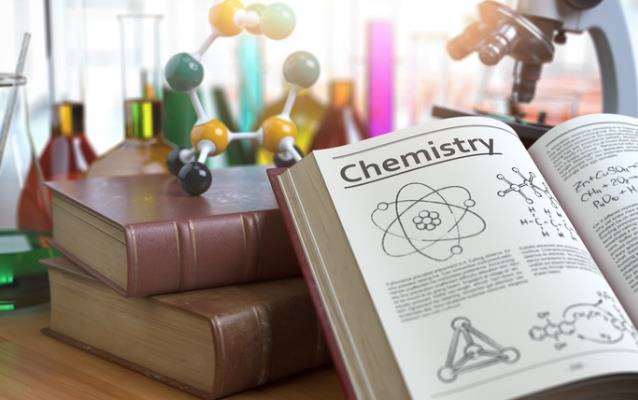NEET is the exam conducted by NTA for students who are willing to take admission into the medical, Dental, AND AYUSH medical courses. NEET is an important competitive exam for the students to take admission in these courses.
Students start preparing for this exam after the 10th.
Chemistry plays an important role in the examination of NEET.
CHEMISTRY SYLLABUS FOR NEET:
- Physical Chemistry:
- Mole concept
- Atomic Structure
- Thermodynamics
- Equilibrium
- Chemical Kinetics
- Electrochemistry
- Gaseous and Redox reaction
- Surface chemistry
- Solutions
- Solid State
- Organic chemistry:
- General organic chemistry
- N containing compound
- Alcohols, Phenols and Ethers
- Biomolecules
- Polymers
- Halo_alkanes and Halo_arenes
- Aldehydes, Ketones and Carboxylic acid
- Chemistry in everyday life
- Environmental chemistry
- Inorganic Chemistry:
- Periodic Table
- Chemical Bonding
- S- block & Hydrogen
- P- block Elements
- D & F block
- Coordination Compounds
- Metallurgy
- Hydrogen
BEST PREPARATION STRATEGY FOR NEET CHEMISTRY
- MAKE THE SYLLABUS FAMILIAR TO YOU:
Most of the students are confused about the syllabus of chemistry. The syllabus of chemistry for neet is very vast and it contains almost all the topics of Chemistry of class 11th and class 12th. Go through the syllabus once while starting the preparation for the Chemistry exam. Chemistry plays an important role in scoring marks in exams.
- START PREPARING EARLIER:
The syllabus of the NEET is vast than the CBSE board syllabus. So start the preparation as early as possible. While preparing for chemistry, you should make yourself familiar with the syllabus and the basic concepts of chemistry. Many students while preparing find difficulties in understanding the concepts due to the lack of basic knowledge about the topic.
- Work on the basic concepts:
The basic concepts are the pillar of every subject, especially in chemistry. In chemistry, make your basics clear because in chemistry the topics are interrelated to each other. By making the basic concepts strong the preparation becomes easy. For making the basics strong, take a brief idea about the topics for which you are studying.
- NOTES:
Prepare notes while preparing. Make the effective and the crisped notes. The notes make the preparation easier and make a habit of learning daily. While preparing notes add the important terms, keywords, equations, laws, and formulas in it. Make the notes in flow chart format for the inter-related topics. Notes help in revision and learning the concepts. It saves time for always reading books. Make sure while preparing notes that you have to cover all the topics and sub-topics.
- CHEMICAL REACTIONS AND FORMULAS:
Chemistry is full of chemical formulas and chemical reactions. While doing the preparation learn all the chemical reactions and formulas. Sometimes students are not able to solve the questions related to the chemical formulas and chemical reactions, because they are not that comfortable with them. To overcome these issues students practice all the chemical formulas and equations many times. There are some reactions that are known by the founder’s name. These reactions are very important for the purpose of the NEET chemistry exam.
- TIME MANAGEMENT:
Time management is an important component of preparation. Students found themselves lagging behind the time management. They are not able to complete the syllabus within the limited period and don’t get the time for revising the notes. To complete the syllabus in a limited time, students will make a timetable for studying and follow it daily. Follow the timetable with consistency, and regularly. Set the daily goal for the preparation of topics. The daily goal helps the students to achieve the target daily, don’t miss the daily goal because by missing the goal the burden increases and students are not able to prepare daily.
- PRACTICE:
Practising is the only key to success in chemistry. As chemistry in itself is a vast subject, students get confused between the topics. By practising and relating the topics the subject becomes easy. Practice the numerical based questions and equations daily. The problems based on moles, henry laws, galvanic cells etc. are important topics. Practising all the chapters and solving the problems based on every chapter makes the path easy for scoring high in exams.
- EVALUATION:
Evaluation is the best thing to prepare for exams. Evaluate yourself by making the weekly progress report. Evaluate by solving the assignment and sample papers. Weekly evaluation helps in knowing the weak points of your preparation. Do the assignments daily and solve the questions based on the topic which you have studied on that day. This makes the habit of learning and enhances the knowledge.
- STUDY MORE BOOKS:
Books are the best material for learning. Many students find difficulty in choosing the books. Choose the books which cover all the topics of chemistry and elaborate on every topic of the NEET syllabus. Prefer the standard books for making the notes because they explain the topics in detail. As the syllabus of NEET is more advanced than the CBSE syllabus, so prepare the books in which the content is given in the advanced form.
- SOLVE ADVANCED QUESTIONS:
The questions asked from chemistry in NEET are advanced versions of other exams. To solve the problems based on the advanced level of chemistry. By solving the advanced level of chemistry questions make the learning enhanced and students get a new angle to solve the questions. Solve many questions related to chemistry from the books and study materials.
- SAMPLE PAPERS:
Sample papers are the best way to evaluate your preparation. Solving the sample paper shows the topics and concepts in which you are weak. So that you can focus more on weak topics. Try to solve the sample paper within the time limit, this improves the time management skills. Patterns of sample papers are similar to papers asked in exams, this gives an idea about how the questions are asked.
REPORTS

